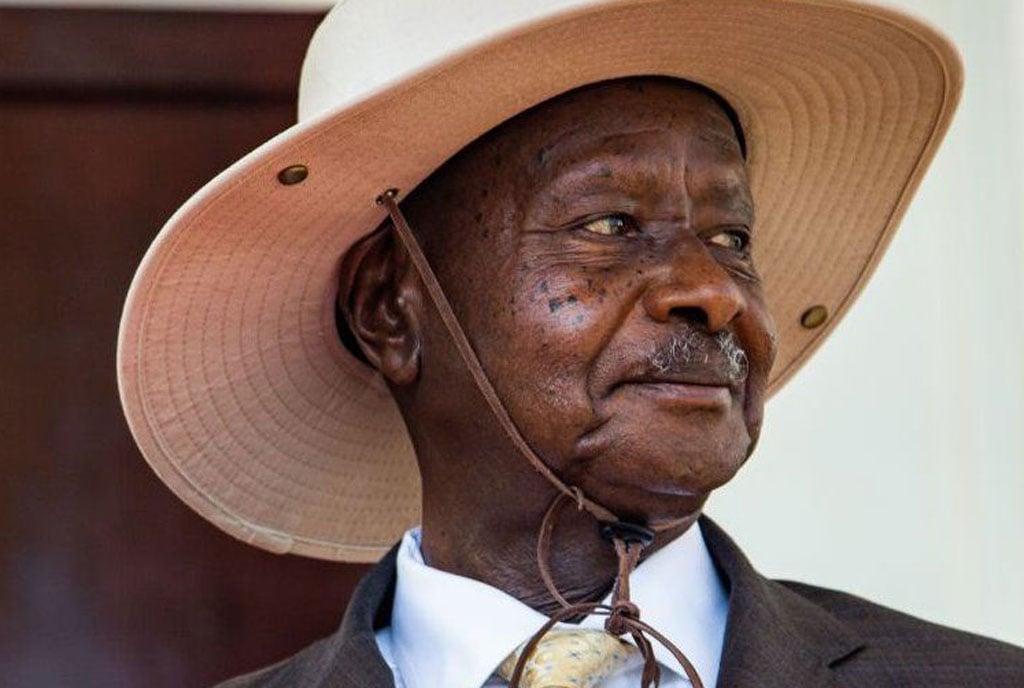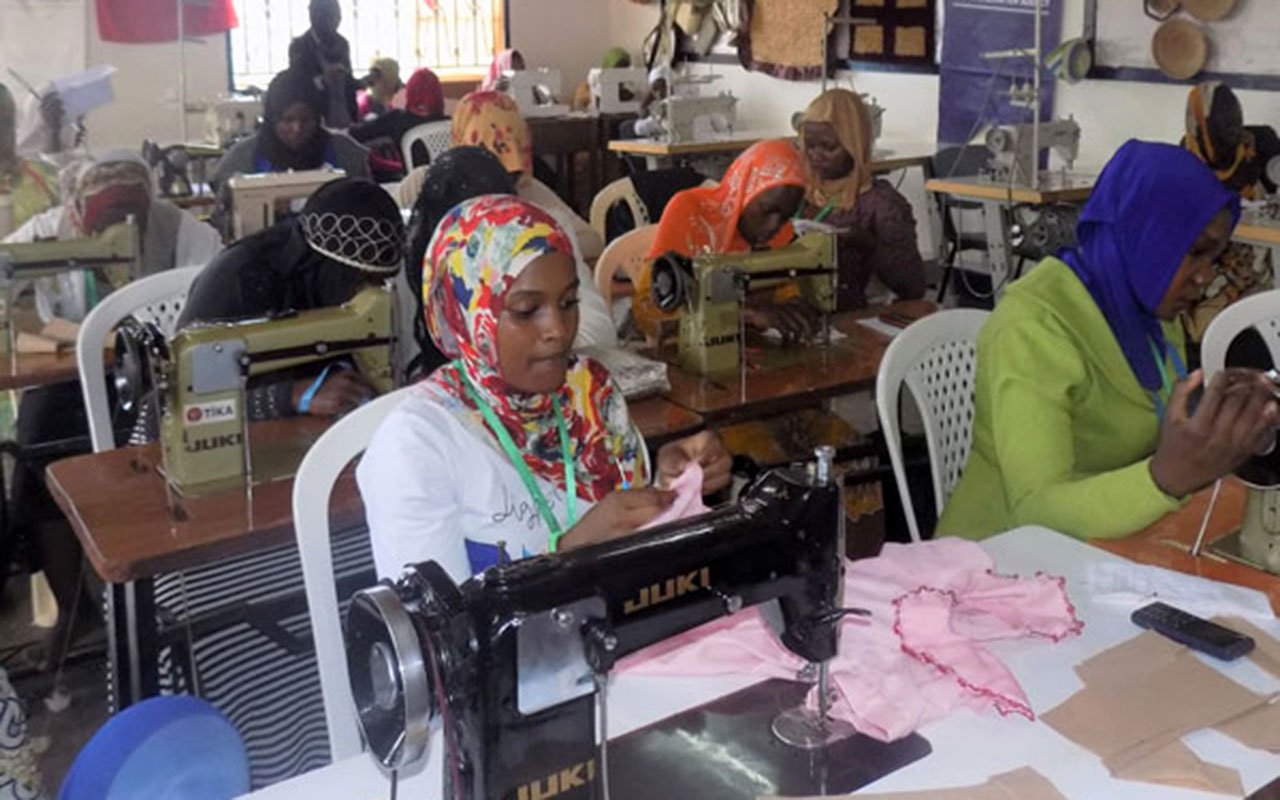Presidential decree fails to stop charcoal burning in Adjumani

A Uganda People’s Defence Forces soldier at one of the charcoal camps at Apaa Junction in Mungula Parish, Itirikwa Sub-county in Adjumani District on April 18, 2023. PHOTO | TOBBIAS JOLLY OWINY
What you need to know:
- Zema Okuni, the National Forestry Authority (NFA)’s supervisor in Zoka Central Forest Reserve, which has been heavily depleted due to illegal activities, blames the Apaa land conflict for escalating the impunity of charcoal production.
Over the years, charcoal production in Adjumani district has grown steadily, to match a high demand for the wood fuel domestically and regionally. The district’s charcoal producing sub-counties include Pakele, Itirikwa, and Ukusijoni.
Francis Ojja, the district’s forest officer, says in the last ten years, the district has lost more than 2,000 acres of private natural forest to charcoal burning. “Between 2011-2016, we lost 500.8 acres while between 2019-2023 the district lost 688.5acres.
By the end of 2024, we project a loss of 802.6acres,” he says Statistics indicate that between 2011 and 2016, the district produced 2,448 metric tonnes of charcoal, translating into 20,448 sacks. Between 2019-2023, 3,060 metric tonnes of charcoal were produced, an equivalent of 30,060 sacks.
“Only 30 percent of this charcoal was locally consumed. Seventy percent of it was transported out of the district. Although enforcement has been stepped up since the presidential decree, we need an ordinance to reinforce the National Tree Planting Act 2003, which does not define operations in private forests,” Ojja adds.
On May 19, 2023, President Yoweri Museveni signed an executive order exercised under Article 99(2) of the Constitution, banning tree cutting for commercial charcoal production in Northern Uganda. However, Adjumani district remains a charcoal production hub.
Every week more than 50 trucks leave the district carrying sacks of charcoal, and yet, this does not translate into local revenue because of the presidential directive.
Proceeds from forest products contributed up to 60 percent of the local revenue collections.
In the last seven financial years, the district collected Shs2.1 billion off charcoal production and logging of timber. Now, Samuel Leku, the chief finance officer of the district, says after the presidential directive, revenue collection has dropped drastically, affecting the activities of the district council, including failure to pay the welfare of councilors.
Alternative sources
“The revenue generated from charcoal taxes, logging licenses and fees has declined. We have been forced to look at alternative sources of revenue like promoting sustainable agriculture, tourism, and market dues,” he says. District officials believe that promoting sustainable land use practices could have the long-term effects of improving the ecosystem and conservation, which can indirectly contribute to economic development.
“The district is in a deep financial crisis. There is no money. Although we have stopped issuing logging licenses, community members come here seeking permission to open land for cultivation. When permission is given, they instead cut trees and burn charcoal,” says Korina Ondoa, the secretary for production and natural resources.
Although the presidential decree has been widely hailed as a good move to save the country’s dwindling forest cover, many question its practicability since a number of highly connected individuals are still exporting charcoal to Kenya, Rwanda, and the Democratic Republic of Congo (DRC).
West Nile’s small-scale charcoal production
Rapid deforestation is not confined to Adjumani district, but to the entire West Nile Region, where charcoal production is the only source of income for many rural families.
Under the scorching sun in Otche sub-country, Moyo district, Jacqueline Atimaku’s hands are calloused and blacked from years of laboring at an earth mound kiln, producing charcoal. Each day, in the intense heat, she ventures deeper into the forest.
The rhythmic sound of her axe echoes against the silence of the trees.
“I do charcoal business because the land I have for cultivation is not enough. We live under the shadow of Mt. Otche, so this place is rocky and does not allow for commercial farming because the yield of maize and vegetables is poor,” Atimaku says.
Atimaku says she harvests four sacks of charcoal from one tree. Selling each sack at Shs25,000, she adds that she needs to cut four trees per month to comfortably provide for the basic needs of her family.
“If the tree is a big one, I can get more than four sacks out of it. The government says when you cut down one tree, you should plant five more but this is impossible because I do not own the land. If I start planting trees, the landlord will think I am trying to grab his land,” she explains.
The charcoal burner is a caterer and tailor by profession but failed to find jobs in which she could practice her skill.
“I am looking out for government programs like the Parish Development Model (PDM), Emyooga, and Youth Livelihood Program (YLP) to get capital to venture into other economic activities because I am beginning to suffer chest pains from the effort of cutting down trees and ferrying the logs to the kiln. I also have to carry the sacks of charcoal over mountainous terrain to my home,” she says.
According to Global Forest Watch (GFW), the West Nile region lost a significant amount of tree cover. To deter people from the illicit trade and transportation of forest products in the region, the army has stepped up patrols, and spot checks, impounding thousands of sacks of charcoal.
Key recommendations
William Amanzuru, the team leader, Friends of Zoka, a non-governmental organisation based in Adjumani district, notes that the level of deforestation is so high in Adjumani that one wonders why the presidential directive is not being enforced.
“The office of the resident district commissioner was tasked with implementing the directive. However, the environmental police, local government and judiciary do not have a clearly spelt out role. All the sectors are operating independently,” he says.
The forest department of Adjumani district has put key recommendations in place to reduce the rampant charcoal production.
“We need to undertake a baseline study to inform sustainable interventions and promotion of reforestation efforts. We also recommend the use of alternative fuel sources such as biogas, solar energy, and briquettes to reduce reliance on charcoal,” Ojja says.
The forest officer adds that the district is targeting to plant 500 acres of trees funded by UNHCR in partnership with the National Forest Authority (NFA).
“We planted 278 acres in 2022 and last year, we planted 318 acres. With support from the Food and Agriculture Organisation (FAO) of the United Nations, several women have been supported to establish wood energy plantations on private land to support daily charcoal production,” he says.
Through the project, FAO has established sustainable woodlots and the use of more efficient charcoal production kilns while at the same time promoting cleaner energy alternatives.
Zema Okuni, the National Forestry Authority (NFA)’s supervisor in Zoka Central Forest Reserve, which has been heavily depleted due to illegal activities, blames the Apaa land conflict for escalating the impunity of charcoal production.
“The conflict has caused a wave of migration, with over 40,000 people entering the forest under the guise of carrying out agriculture last year. Instead, they are cutting down trees. Resolving the Apaa conflict is the key to stopping deforestation in Adjumani district,” he says.
Currently, the UPDF has a brigade stationed in the Zoka Forest area, making it the most heavily guarded regions in the West Nile area. Unfortunately, charcoal burning in the forest is still going on, unabated.
A recent crackdown saw the army impound over 23,000 sacks of charcoal coming from the forest.
Produced by Nation Media Group in partnership with the Bill ad Melinda Gates Foundation.



